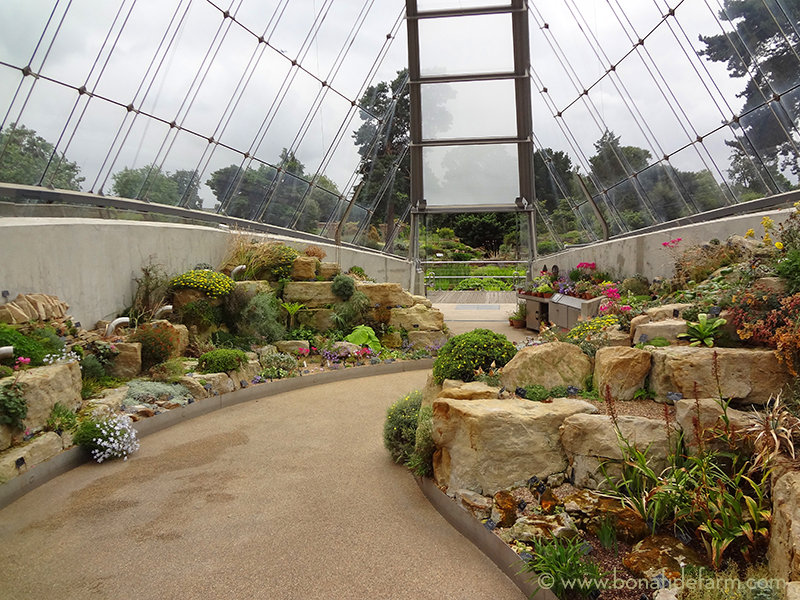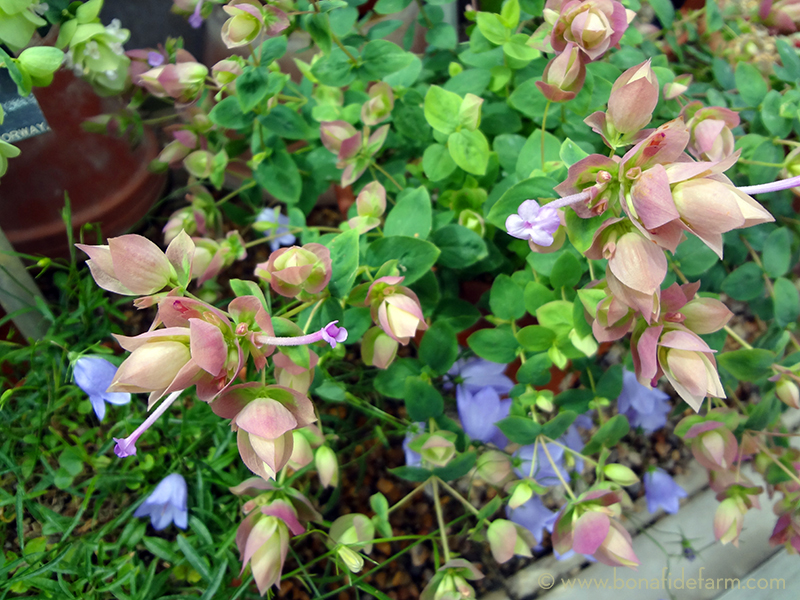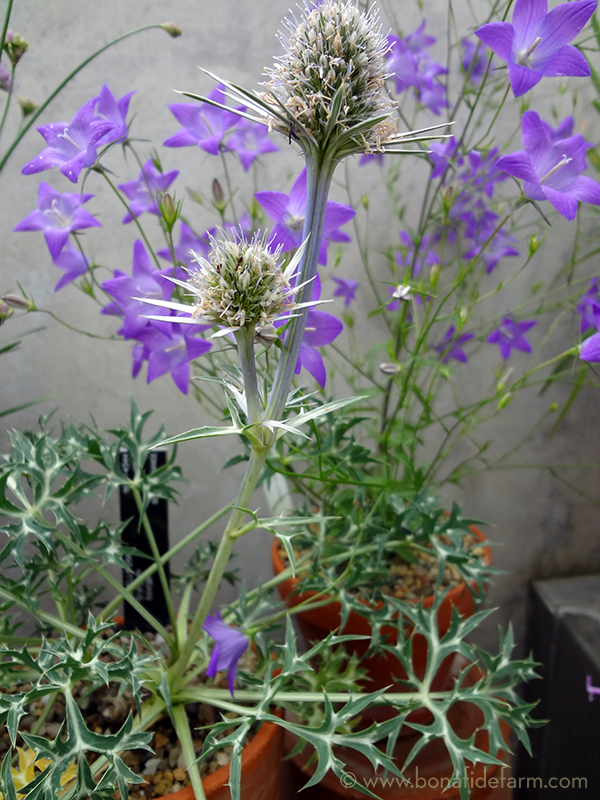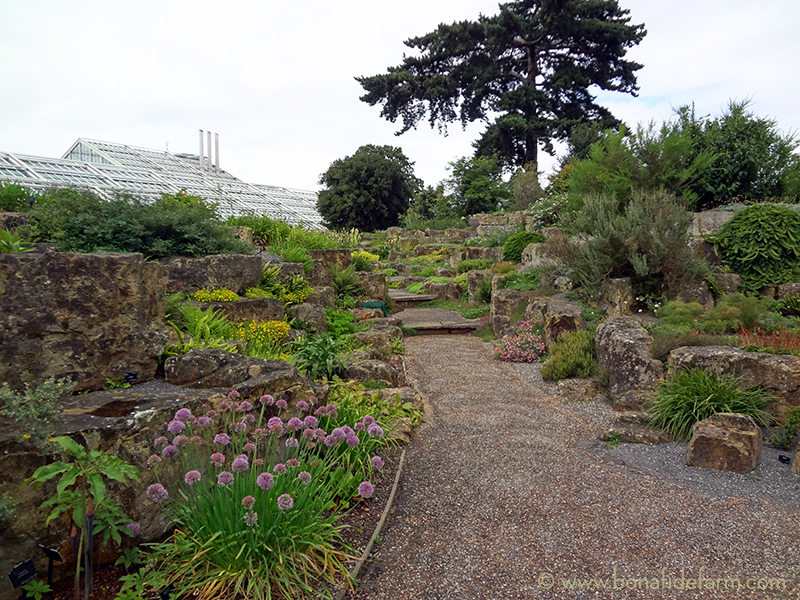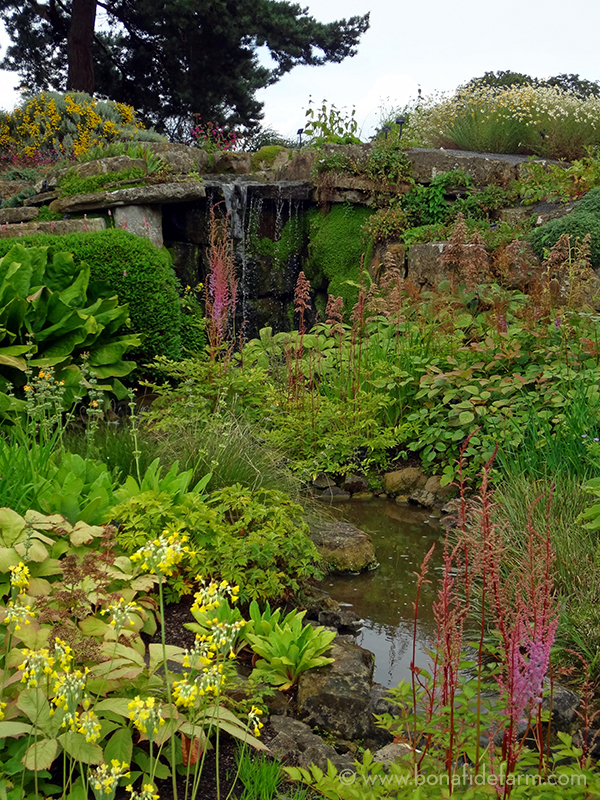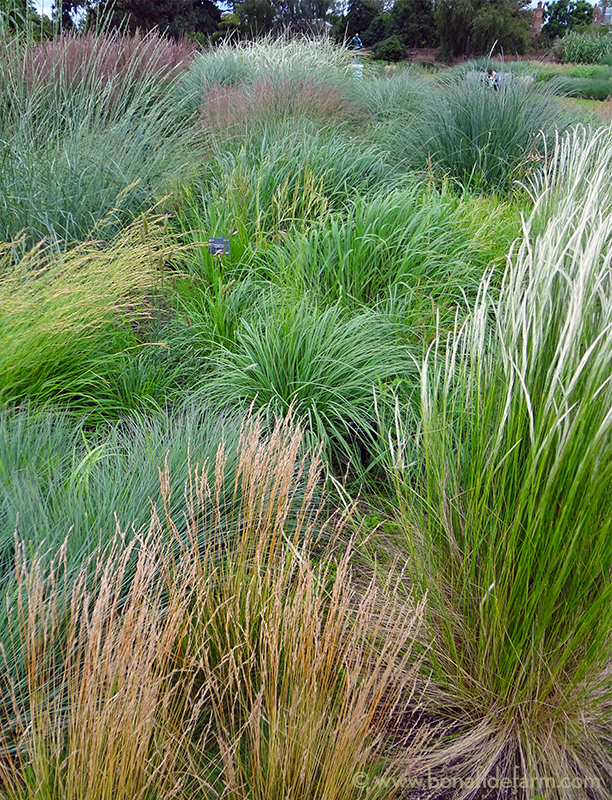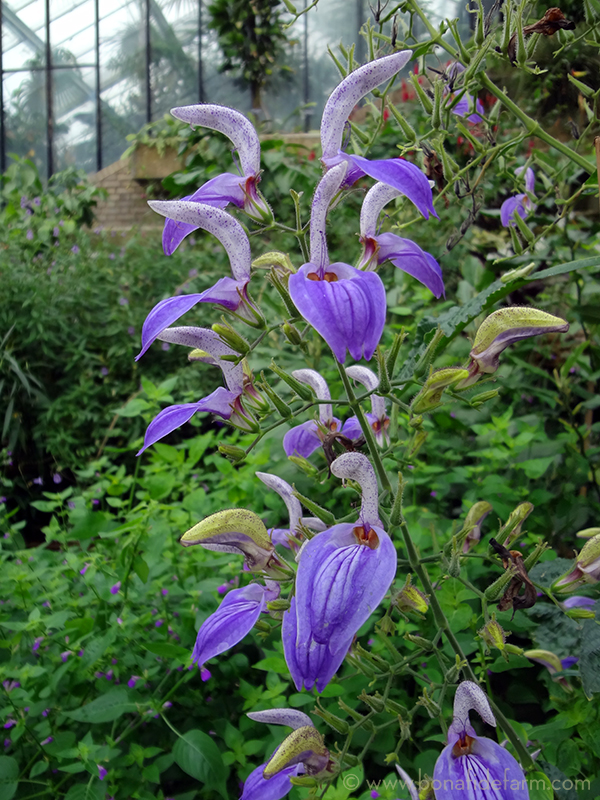Snowplows are rumbling outside my window, the white stuff’s still coming down, and temps are cold enough to warrant a red-light district in the chicken coop. Sounds like a great time to revisit England in July, this time to the Royal Botanic Gardens, Kew—a must-see spot on any gardener’s tour of England.
Kew was founded in 1759 and declared a UNESCO World Heritage Site in 2003. I thought that seemed pretty old until I looked up the world’s oldest botanical garden, which is in Padua, Italy and was created in 1545. The Padua garden is also a World Heritage Site, according the UNESCO, “considering that the Botanical Garden of Padua is the original of all botanical gardens throughout the world, and represents the birth of science, of scientific exchanges, and understanding of the relationship between nature and culture. It has made a profound contribution to the development of many modern scientific disciplines, notably botany, medicine, chemistry, ecology, and pharmacy.” Most people don’t immediately think of all these far-reaching implications of gardening, but there you have it, and it’s all true.
But that’s enough trivia—we came here to see Kew, and Padua will just have to join the very long list of gardens yet to be visited. In addition to being a top London tourist attraction, Kew is also a research institution for plant science and conservation. I can’t speak to any sort of research that’s happening at Kew, and can only appreciate it as a gardener. It’s definitely impressive, and huge, and though I’ve visited it twice on separate trips to England, I am sure there is still more to see. Far be it from me to cover it all in a couple of posts, so I will just focus on the areas most interesting to me.
In addition to giant, Victorian-era glasshouses that house palms and tropicals, there are a few more modern structures:
The structure above, to the left, is the newest glasshouse and one of my favorites. It’s the Davies Apline House, a rock garden full of all sorts of tiny little plants—most of them seeming Mediterranean in origin. I love how these small plants are basically served up on rocky platters, brought close for use to appreciate them in detail and in pleasing contrast to their rocky ledges. Can you believe that four full-time staff and one trainee are dedicated to the care of this glasshouse, which isn’t much larger than what you see in the photo? That is wonderful to me—so many talents and resources dedicated to such tiny plants in a little space.
It was in this display that I found a spectacular oregano, Origanum amanum, from Turkey. It’s similar to a hybrid ornamental I grow in my own garden, Origanum “Kent Beauty.” The blue flower in the photo is some sort of bell flower.
Just outside this glasshouse is an outdoor rock garden, which is one of my favorite areas of Kew. What I like about it, again, is how the rocks form a stage that elevate into the spotlight small and perhaps easily overlooked plants.
Near this area is a series of great meadows planted with all sorts of grasses. I love the painterly effect of their intermingling, and that they would be relatively low maintenance. This is definitely an idea I’d like to try somewhere on my own property—once I can get past the on-the-surface foolishness of replacing a perfectly good natural meadow with a cultivated one!
I won’t focus too much on the glasshouses, as I found them to be the least interesting part of Kew. They’re neat in that they’re old, and have lots of peeling-white-paint patina, but the plantings inside them just weren’t as interesting to me as what was going on outside. Perhaps that’s because I approach every garden visit with an eye toward what I can appropriate for Bonafide Farm, and a greenhouse full of tropicals just isn’t in my future. Although, funnily enough, my neighbors opened a winery centered on a giant greenhouse full of tropicals, so it’s certainly possible right in this mountainous little valley in Central Virginia.
I couldn’t resist, however, this flowering vine growing in one of the glasshouses. I know not what it is, but isn’t it exquisite? If you can i.d. it, tell me in the comments, please!
Up next in part two, walking the grounds of Kew, and getting some wood with the sculptor David Nash.


